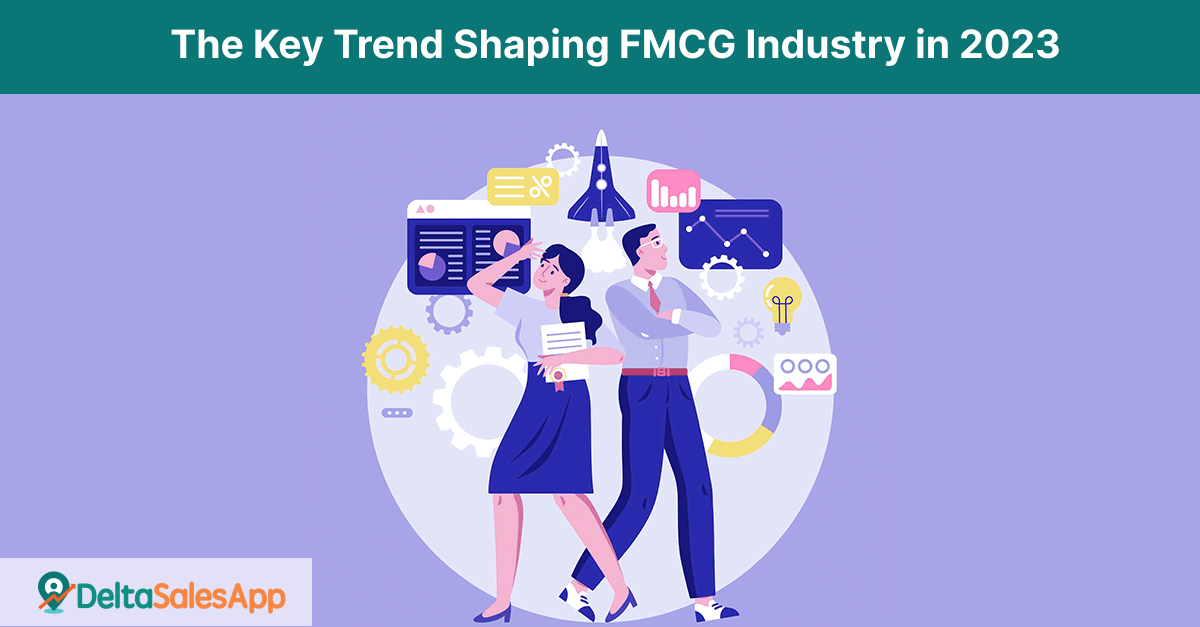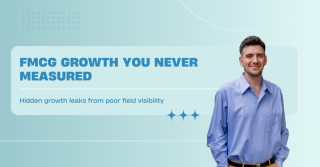The Key Trend Shaping FMCG Industry in 2023

Are you ready to dive into the future of the FMCG industry? Buckle up because we will unveil the key trend shaping this dynamic sector in 2023. As consumer demands evolve and technology continues to revolutionize every aspect of our lives, FMCG companies must stay ahead of the curve. In this blog post, we'll explore how a single trend is set to redefine everything from product innovation and supply chain management to marketing strategies and customer experience. So grab your crystal ball, and let's peer into the exciting world of FMCG in 2023!
a. AI and Data Analytics Revolutionizing Decision-Making
Artificial Intelligence (AI) and data analytics are no longer futuristic concepts; they are reshaping the FMCG landscape. By harnessing the power of AI, businesses can analyze consumer behavior patterns, optimize supply chains, and personalize marketing efforts. This data-driven approach enables companies to make informed decisions, enhance customer experiences, and streamline operations.
b. E-Commerce and the Digital Shopping Experience
The rise of e-commerce has disrupted traditional retail models. The convenience of online shopping combined with advanced technologies like Augmented Reality (AR) and Virtual Reality (VR) is revolutionizing the digital shopping experience. FMCG brands must establish a strong online presence, optimize their websites for mobile devices, and leverage these immersive technologies to provide consumers with interactive and engaging shopping journeys.
c. Health and Wellness - A Non-Negotiable Priority
Consumers' focus on health and wellness has escalated significantly. The FMCG industry must respond by offering healthier product alternatives, transparent labeling, and responsible marketing. Products with functional benefits and natural ingredients are gaining traction. Brands that prioritize health-conscious consumers and provide products that align with their lifestyles will be at the forefront of this trend. Personalization: From
d. Products to Experiences
The era of one-size-fits-all is over. Consumers are seeking personalized experiences, and the FMCG industry is no exception. By harnessing data insights, companies can tailor product recommendations, marketing messages, and shopping experiences to individual preferences. This level of personalization fosters brand loyalty and drives customer engagement.
d. Rise of Direct-to-Consumer (DTC) Models
The FMCG industry is witnessing a shift towards Direct-to-Consumer (DTC) models. Cutting out intermediaries allows brands to establish direct connections with consumers, gather feedback, and create stronger brand loyalty. DTC also empowers brands to control pricing and messaging, fostering a more intimate relationship with their audience.
e. The Role of Social Media in Consumer Engagement
Social media platforms continue to be influential avenues for consumer engagement. FMCG brands must leverage these platforms to create compelling content, share authentic stories, and interact with consumers in real-time. Social media amplifies brand visibility and serves as a vital channel for customer feedback and market trends.
f. Supply Chain Resilience in a Complex World
The disruptions caused by the global pandemic highlighted the importance of a resilient supply chain. FMCG companies must invest in technologies that enhance supply chain visibility, mitigate risks, and ensure smooth operations even in challenging circumstances. Innovation is key to building a robust and adaptable supply chain, from predictive analytics to blockchain.
g. Packaging Innovation for Sustainability and Convenience
Packaging is undergoing a dual transformation—becoming both more sustainable and convenient. Biodegradable materials, minimalist designs, and innovative packaging solutions are gaining traction. Balancing sustainability with consumer convenience will be crucial for brands aiming to stay relevant and reduce their ecological footprint.
h. Meeting the Demand for Ethical and Local Products
Consumers are growing in preference for products that align with their ethical values and support local economies. FMCG brands should explore partnerships with local suppliers, incorporate fair trade practices, and emphasize the ethical sourcing of ingredients. This trend not only resonates with consumers but also contributes to community development.
Challenges and Opportunities: Navigating the FMCG Landscape
The Key Trend Shaping FMCG Industry in 2023 brings with it a host of challenges and opportunities that require strategic foresight and adaptability. Let's explore how businesses can turn these dynamics to their advantage:
Challenges:
Adaptation Speed: Rapid adoption of digital and sustainable practices requires significant organizational changes, challenging traditional mindsets.
Data Privacy Concerns: With increased data usage comes the responsibility of protecting consumer information and adhering to data privacy regulations.
Supply Chain Disruptions: While resilience is a goal, achieving it in the face of global uncertainties demands careful planning and resource allocation.
Consumer Education: Navigating the health and wellness trend requires educating consumers about product benefits and debunking myths.
Opportunities:
Market Expansion: Omni-channel strategies open doors to wider consumer bases, fostering growth in established and new markets.
Innovation: Sustainable packaging and product innovation can differentiate brands and appeal to eco-conscious consumers.
Enhanced Customer Insights: Data analytics provide unparalleled insights into consumer behavior, enabling tailored strategies.
Brand Loyalty: Personalization and DTC models strengthen customer loyalty by creating meaningful connections.
Conclusion
In conclusion, the FMCG industry in 2023 is experiencing a profound evolution shaped by the surge in e-commerce, the embrace of direct-to-consumer approaches, the power of data-driven personalization, the commitment to sustainability, and the integration of innovative supply chain solutions. Adapting to these trends is no longer optional; it's necessary for FMCG companies aiming to retain competitiveness and effectively cater to the changing preferences of consumers in this dynamic and rapidly evolving landscape. By staying attuned to these trends and seizing their opportunities, FMCG brands can position themselves for continued growth and success in the years ahead.
FAQs about The Key Trend Shaping FMCG Industry in 2023
Is sustainability the only focus of the FMCG industry in 2023?
While sustainability is a significant aspect, the key trend encompasses digital transformation, data-driven decision-making, and personalized consumer experiences.
How can small FMCG businesses adopt data-driven strategies?
Small businesses can start by investing in user-friendly analytics tools, segmenting their customer base, and using insights to tailor their offerings.
What role does AI play in personalizing FMCG offerings?
AI analyzes consumer behavior and preferences, allowing businesses to offer product recommendations that align with individual needs and preferences.
What steps can FMCG companies take to ensure a resilient supply chain?
FMCG companies can diversify suppliers, invest in digital supply chain technologies, and establish contingency plans to mitigate disruptions.









